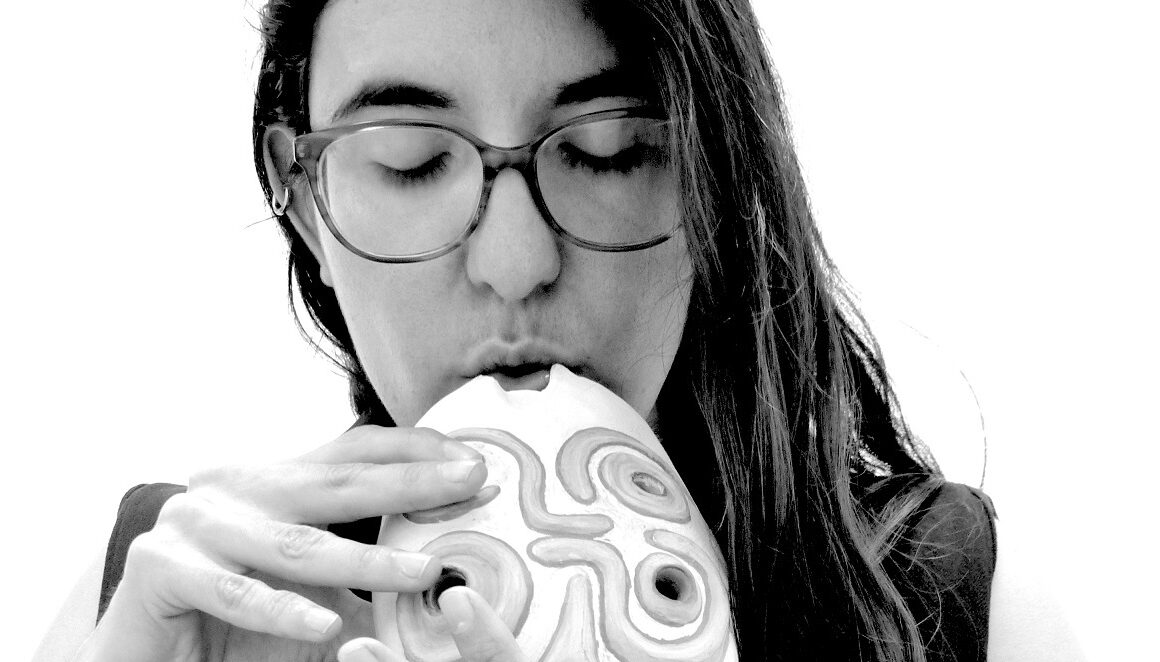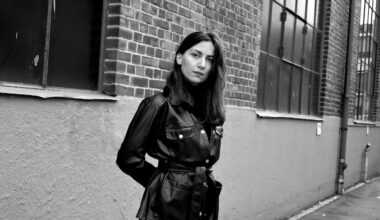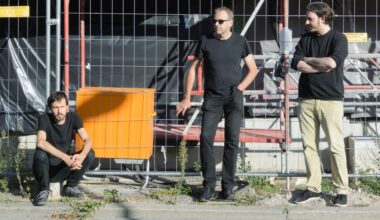Macri Cáceres is a performer and composer of mixed and electronic music, improviser, builder of ceramic flutes, creator of sound spaces and poetry. Producer and curator of the Virtual Meeting of Female Latin American Composers, founding member of Musuq non profit organization, part of RETAMA, the first group of peruvian female composers and member of RedcLa, Network of Latin American Female Composers.
Her research with the sonic possibilities of ceramic flutes has led her to both harmonic exploration during the construction process, and creative possibilities in composition and collaboration with other artists and disciplines. Within her own creative process, she uses elements from different disciplines and areas of knowledge to conceptualize her work, creating and performing pieces that involve sound poetry, graphic and text scores created out of symbols and iconography based on photography, movement and databending.
During the Heroines of Sound Festival 2022 Macri Cáceres will present a ceramic flutes workshop and a series of concerts together with the female composers collective RETAMA and Ensemble KNM Berlin.
FACTS
1. You cannot live when you are untouchable. Life is vulnerability. – Édouard Boubat
2. “No” is a complete sentence
3. Remember to pause and breathe
QUESTIONS
1. What is the biggest inspiration for your music?
I would say inspiration for my music comes from two main sources that I consider inspiring: the energy of nature in any of its forms and the thoughts and relations of human minds transformed into other forms of art.
2. How and when did you get into making music?
Music has always been a part of my life, since I was born and my father put little speakers with music next to my incubator to keep me company because I was born almost three months earlier. But consciously making music I think I began when exploring in college, and later on once I discover that for me, creating poetry and other forms of arts could also mean creating sonic art and music.
3. What are 5 of your favourite albums of all time?
Mundo – Ruben Blades
Euforia – Fito Páez
Born and Raised – John Mayer
Feels like Home – Norah Jones
Eco de sombras – Susana Baca
They all make me remember a moment or place in my life that I care deeply for.
4. What do you associate with Berlin?
Interculturality, fast movement on a thought city and beer with friends.´
5. What’s your favourite place in your town?
At a rock beach in front of the ocean. It’s a really liberating place from the chaos of the city.
6. If there was no music in the world, what would you do instead?
I’m a maker so I think I would still create in any way I could. Probably I would write and read a lot, and spend more time with my plants.
7. What was the last record/music you bought?
The last album I bought was Resonancias Entrelazadas, a beautiful album by Natalia Merlano Gómez which includes 15 pieces written by women composers from different countries.
8. Who would you most like to collaborate with?
Lately I learned about Trickster Orchestra and their idea of presenting new sonic experiences for both musicians and audiences. I would really like to collaborate with them in something playful and interesting.
9. What was your best gig (as performer or spectator)?
As a performer I would say my best gig so far was a really small concert on a house in Potsdam- Berlin, nothing big or fancy but it was a beautiful experience shared with friends. It marked the end of a process of constructing ceramic flutes and whistles with two amazing performers who I care deeply about: Sabine Vogel and Ute Wassermann.
10. How important is technology to your creative process?
If we think of technology as new media and interfaces, I’m not sure it plays a big role during the first stages of my creative process, at the parts of conceiving the ideas and first sounds or images. That is usually a more organic and less electronic process. But if we think of technologies in a broader context, as any new way of experiencing reality, then of course is inherently part of my creative process.
11. Please tell us, what the audience can expect from your piece you present at this years Heroines of Sound festival?
I will be performing three pieces from talented composers: Peruvians Isa Otoya and Pía Alvarado, and Ana María Rodriguez, Argentinian composer living in Germany. This concert, that also presents the work of three other amazing Peruvian composers, is a collaborative project called MORGEN IST DIE FRAGE , based on the cooperation between female composers from both countries, myself and Ensemble KNM Berlin. The phenomenon of uncertainty runs like a thread through the compositions and connects them as a common point, in which the different interpretations and contexts from graffitis of the two cities can be heard.


